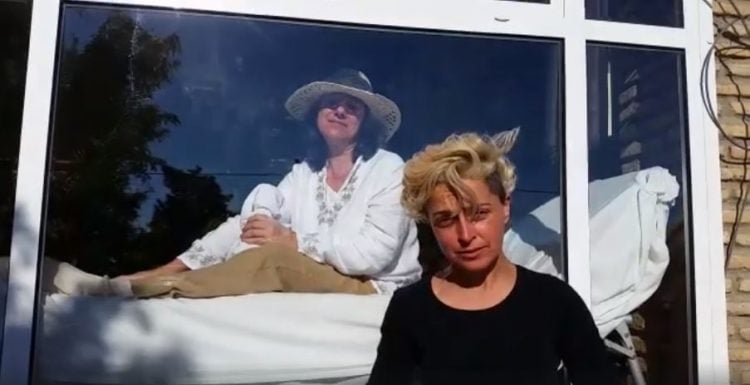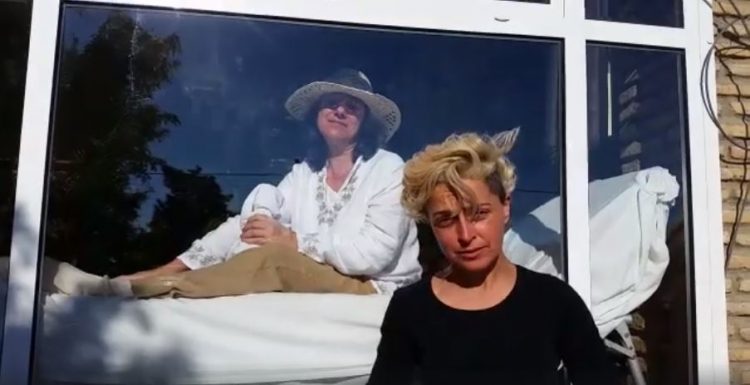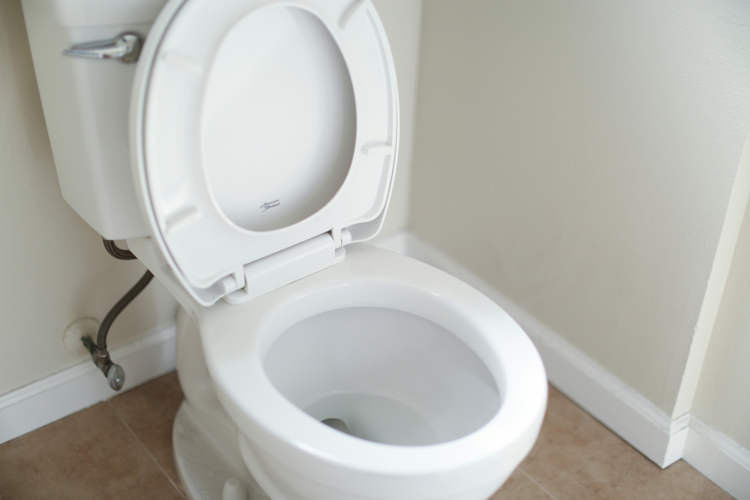53-year-old Juana Munoz, from Cadiz, Spain, has been living in a custom glass cage for the last 13 years. It is her prison, but also the very thing that keeps her protected from all the things that would otherwise kill her.
After being diagnosed with four life-threatening conditions – multiple chemical sensitivity (MCS), fibromyalgia, chronic fatigue syndrome and electrosensitivity – Juana Munoz had no choice but to isolate herself inside a 25-meter glass cage. She cannot leave that space without following a very strict protocol, and anyone coming in must first shower with chemical-free cleaning products and wear only organic cotton clothes. The most painful thing is that her family cannot touch, let alone hug her without putting her life in danger. Juana’s two children, aged 26 and 29, are only allowed to hug her two times a year, and only after undergoing several days of preparation.

Photo: Facebook video screengrab
Juana claims that the nightmare that has become her life started 29 years ago, with some potatoes that her husband had planted in their yard. She recalls that as soon as she touched the potatoes, her lips and eyes started swelling, and she had to be taken to a doctor. By the time she arrived at the hospital, her whole body had become swollen and she remembers looking “like a monster”. She was treated with corticosteroids and eventually discharged, but from that point on, whenever she came in contact with various chemicals she would experience vomiting, fatigue, skin irritations, asphyxia and various allergic reactions.
She recalls that those potatoes had been sprayed with a pesticide that was banned a couple of years after suffering her first chemical sensitivity crisis. She is convinced that it was this pesticide that triggered her sensitivity, but she does not want to reveal its name, because she doesn’t want any legal trouble. All she wants is to be able to hug her family again.
As time went by, Juana’s chemical sensitivity worsened and she was also diagnosed with fibromyalgiaand chronic fatigue syndrome, so she had to be isolated in a small glass cage overlooking her garden. She’s been living there for the past 13 years, hoping that one day she will be able to step out and lead a normal life once again.
Juana’s husband, who also acts as her nurse, grows organic produce in their garden, which make up most of her daily diet. Twice a month, she eats organic meat sourced from trusted producers, and four or five times a month, she eats fish. She can only wear organic cotton clothes and uses a ceramic mask custom made in Germany, to inhale oxygen whenever she feels breathless.
Because of her multiple chemical sensitivity (MCS), Juana Munoz only leaves her “bubble” once a year, and only because she has to. After being diagnosed with breast cancer a few years ago, she must undergo a yearly checkup at the University Hospital of Puerto Real. She describes the trip as “hell”. The car she rides in must be as free of chemicals as possible, but it’s hard to sterilize a vehicle, and on one occasion, she almost asphyxiated before reaching the hospital.
Upon arrival at the hospital, she is put in an empty, sterilized room and the checkup is conducted according to a special and tedious protocol. On the same day, she returns to her glass cage.
Muscle aches, asphyxia, skin sores and fatigue are all parts of Juana’s daily life, but she somehow finds the strength to carry on. One of her main goals in life is to promote awareness about MCS and improve the life of other sufferers. To this end, she has started a campaign called “El Abrazo” (The Hug), which aims to help create a mask with special chemical filters. This would allow Juana to hug her own mother once again. As an elderly, it’s hard for her to follow the strict protocol her children do when they are allowed to touch her, but this mask would make that simple, yet so important hug possible.
For most of us, hugs are simple gestures that we sometimes overlook, but for people like Juana Munoz, they are the ultimate goal.
She also has a grandson on the way, but she fears that due to her condition, she will never be able to hold him in her arms, and instead be forced to look at him through a glass pane.
Juana Munoz’s case is reminiscent of that of Johanna Watkins, who suffers from Mast Cell Activation Syndrome, a rare genetic disorder that causes her body to develop life-threatening anaphylactic reactions to virtually everything, including her husband. She too has to live isolated and only enjoys physical interaction under strict protocol.













